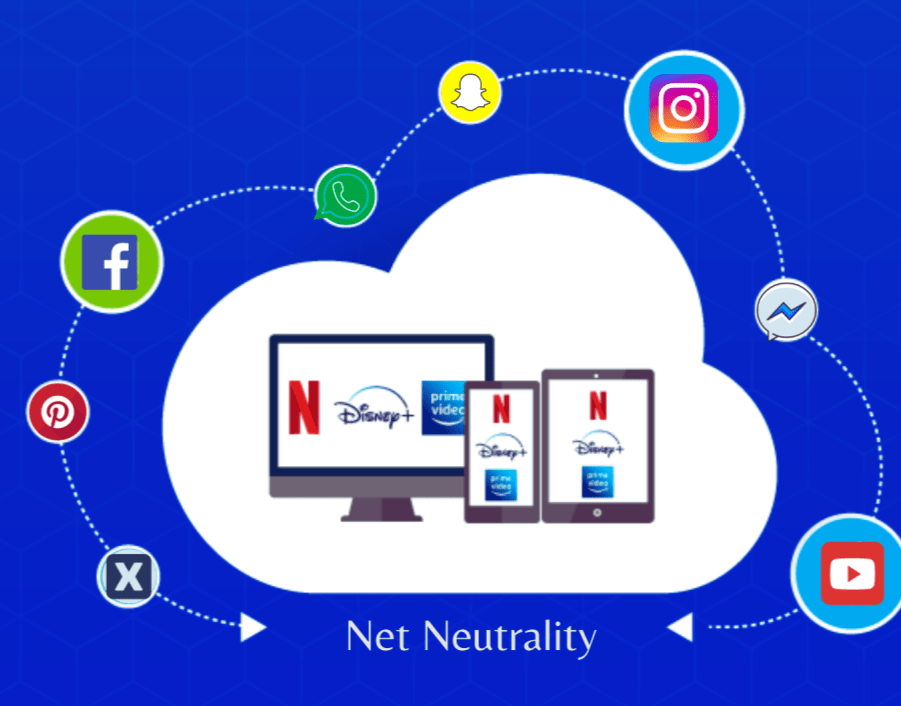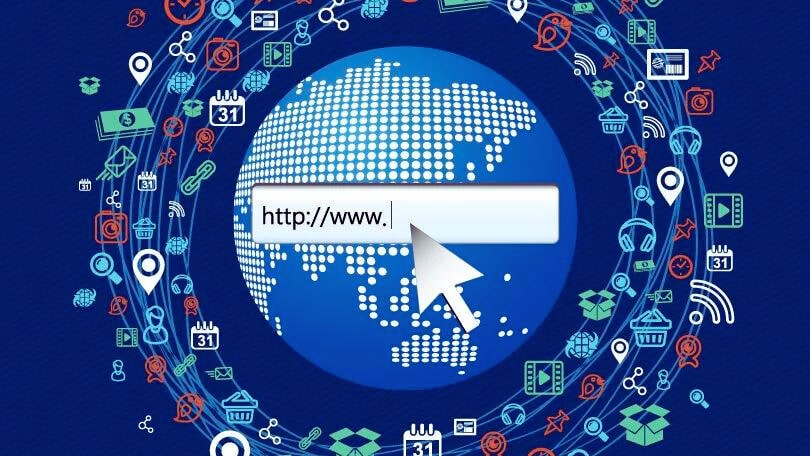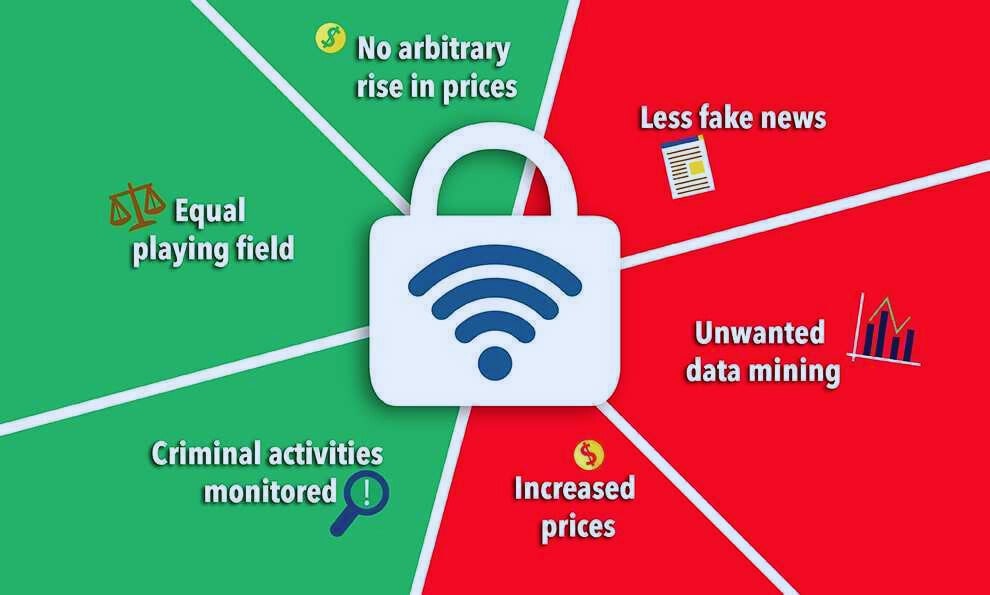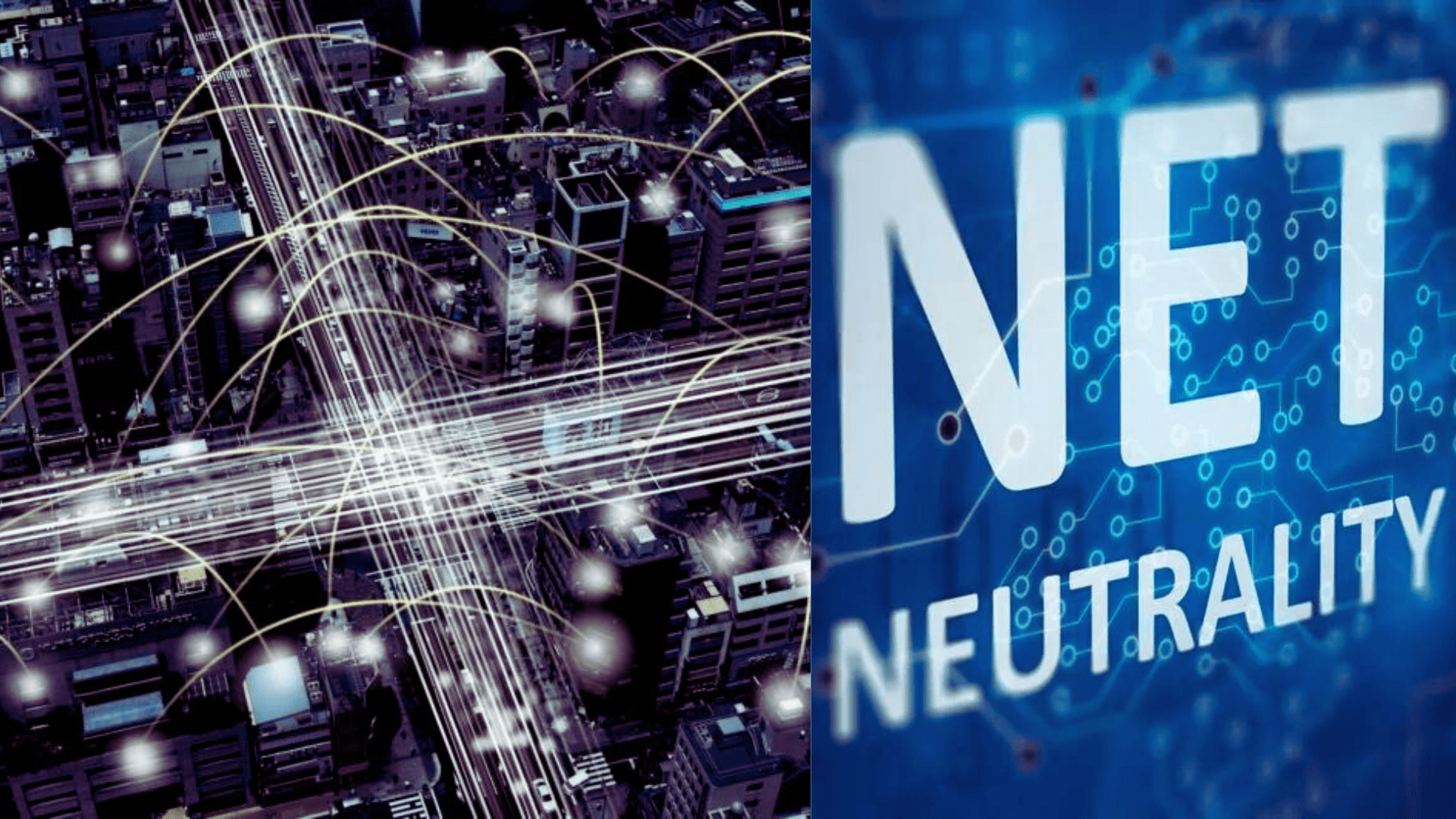Net neutrality is the principle that internet service providers (ISPs) must treat all data on the internet equally without discriminating or charging differently by user, content, website, platform, or application. The relevance of net neutrality lies in its foundational role in maintaining an open and fair internet. It ensures that ISPs cannot prioritize certain websites or services over others, which is crucial for preserving the freedom of information and promoting equal opportunities for innovation and competition in the digital space. The importance of net neutrality extends to protecting consumer rights, fostering competition among businesses, and supporting the free flow of information, which are vital for a democratic society.
Definition of Net Neutrality

Net neutrality is the principle that Internet service providers (ISPs) should treat all data transmitted over the Internet equally, without discriminating or charging differently based on user, content, site, platform, or application. It prohibits ISPs from engaging in practices such as blocking, throttling, and paid prioritization of internet traffic. This concept is essential for maintaining an open and fair internet where all users have equal access to information and services, thus supporting freedom of expression and promoting innovation by allowing new applications and services to compete on equal footing with established players.
The Origins of Net Neutrality

The concept of net neutrality began taking shape in the early 2000s, though the principles it encompasses have been debated since the dawn of the internet. The term “network neutrality” was first coined by Columbia University law professor Tim Wu in a 2003 paper, marking the start of a more formal and public discussion about equal treatment of data on the internet.
This academic discussion soon translated into a broader political and regulatory battle. The debates and policies surrounding net neutrality sought to address whether Internet Service Providers (ISPs) should have the ability to prioritize certain types of traffic, potentially stifling competition and innovation by favoring their services or those who could afford to pay for enhanced visibility and access.
By 2017, net neutrality had become a hotly contested issue, involving large ISPs, governments, and the public, each contributing to the evolving narrative of maintaining an open and fair internet.
Why Net Neutrality Matters
For Consumers

Net neutrality offers several important benefits for individual internet users:
- Equal Access to Content: Net neutrality ensures that ISPs cannot block or throttle specific websites or services, meaning consumers can access every site at the same speed without discrimination.
- Cost Efficiency: Protecting net neutrality prevents ISPs from creating “fast lanes” for which users might have to pay extra. Without net neutrality, the cost of internet services could increase, as consumers might need to pay additional fees to access content at reasonable speeds.
- Encourages Competition and Innovation: By ensuring that all online services, whether large or small, have equal footing on the internet, net neutrality fosters a competitive market. This encourages innovation and prevents larger companies from using their resources to dominate the internet space at the expense of newer, smaller entrants.
These benefits ensure that the internet remains a level playing field, promoting freedom of expression and protecting consumer rights against potentially monopolistic behaviors of ISPs.
For Businesses

Net neutrality significantly impacts businesses, especially small and medium-sized enterprises, by ensuring a level playing field on the Internet:
- Equal Access to Markets: Net neutrality prevents Internet Service Providers (ISPs) from favoring certain websites over others, allowing businesses of all sizes to compete on equal terms. Without net neutrality, larger companies could potentially pay for prioritized access, making it harder for newer and smaller businesses to compete.
- Cost Barriers: If net neutrality is repealed, small businesses might face higher costs to reach their audience effectively. They may need to pay ISPs for “fast lane” access just to provide a user experience comparable to larger competitors, which could be prohibitively expensive.
- Fair Competition: Net neutrality supports an environment of healthy competition. Businesses can innovate and grow based on the quality of their services and products rather than their ability to pay for better visibility and faster internet speeds.
- Equal Opportunity for Innovation: With net neutrality, new and emerging businesses have the opportunity to innovate without being overshadowed by larger corporations. This fosters diversity and innovation within the business ecosystem.
These points illustrate how net neutrality not only protects consumer rights but also ensures fair business practices and competition in the digital economy.
For Innovation

Net neutrality plays a critical role in fostering innovation and maintaining competitive equality in various sectors:
- Platform for Innovation: Net neutrality ensures the internet remains a level playing field, crucial for innovation. Preventing ISPs from prioritizing traffic, allows startups and small enterprises equal opportunities to develop new technologies and internet-based services.
- Encourages Competition: With net neutrality, small players have the same internet access as large companies, fostering a competitive market where the best ideas can succeed regardless of the company’s size or financial backing.
- Supports Niche Disciplines and Innovations: A neutral net promotes the development of niche areas and innovative practices, potentially revolutionizing fields such as healthcare, education, and more by providing equal access to online resources.
- Healthcare Innovation: Specifically in healthcare, net neutrality ensures that startups and smaller providers have the opportunity to innovate with new technologies and treatments, facilitating advancements in telehealth and patient care.
These aspects underscore why maintaining net neutrality is essential for continuous innovation and healthy competition across industries.
The Arguments Against Net Neutrality
Internet Service Providers’ Stance

Internet Service Providers (ISPs) generally oppose net neutrality for several key reasons:
- Investment and Innovation: ISPs argue that net neutrality regulations prevent them from making necessary investments in network infrastructure. They claim that without the ability to charge for prioritized access, there’s less incentive to invest in expanding or upgrading their networks.
- Prioritization of Services: ISPs want the flexibility to prioritize certain types of internet traffic, such as IoT communications and other critical services, which they claim could enhance overall network efficiency and performance.
- Economic Growth and Regulation: Opponents of net neutrality also argue that less regulation would lead to more innovation and economic growth. They believe that government interference in the internet creates unnecessary barriers that could stifle technological advancements and market evolution.
These arguments form the core of ISPs’ stance against net neutrality, emphasizing economic and service delivery concerns that they believe are hindered by strict regulatory measures.
Regulatory Concerns
Arguments against net neutrality often focus on concerns regarding government regulation. Key points include:
- Stifling Innovation: Opponents argue that net neutrality regulations can prevent ISPs from innovating. They believe that the internet should not be heavily regulated by the government as it could stall the development of new technologies and services.
- Economic Impact: There is a concern that government regulations under net neutrality could act as a barrier to economic growth. By imposing restrictions on how ISPs can manage their networks and services, it might limit their ability to invest in network improvements and innovations.
- Regulatory Overreach: Some see net neutrality as an example of government overreach. They argue that the regulation is unnecessary and that the Internet market can regulate itself more effectively through competition and market forces.
These arguments against net neutrality reflect a broader skepticism about the role of government in managing internet services, emphasizing a preference for less regulation to foster innovation and growth.
Global Perspectives on Net Neutrality
Europe

In Europe, net neutrality is safeguarded under Regulation (EU) 2015/2120, which mandates that internet service providers (ISPs) treat all internet traffic equally without discrimination, restriction, or interference. This regulation ensures that ISPs cannot block or throttle traffic nor prioritize certain services, which upholds a fair and open internet.
The guidelines for implementing these rules were seen as a victory for net neutrality advocates, suggesting strong protection for equal access to online content without undue influence from ISPs or large tech companies. However, there have been proposals, such as the European Commission’s idea to force websites and apps to pay fees to broadband companies, which could undermine these principles by introducing potential biases into internet traffic management.
Asia
Net neutrality discussions and policies in Asia show significant diversity across the region, reflecting unique governmental initiatives and the region’s varied political and economic landscapes. While net neutrality generally promotes non-discriminatory treatment of data by Internet Service Providers (ISPs), its application and enforcement can vary widely.
- Regional Interest: There has been a growing interest in net neutrality in Asia, driven by unique government initiatives that seek to address the diverse needs and challenges within the region.
- South Asia: In South Asia, the principle of net neutrality encompasses non-discrimination of internet data. However, the implementation details and degree of regulatory enforcement can vary significantly from one country to another, reflecting their distinct internet governance models.
- China: Despite claims of net neutrality, the reality is complex. Experts suggest that ISPs in China, which are owned and operated by the government, may not adhere strictly to net neutrality principles, indicating a potential for biased data handling practices.
Net Neutrality Pros and Cons

Pros:
- Equal Treatment of Traffic: Net neutrality ensures that all internet traffic is treated equally, preventing ISPs from discriminating based on content, user, website, platform, or application.
- Promotes Fair Competition: By preventing ISPs from prioritizing certain services, net neutrality fosters an environment of fair competition among businesses.
- Consumer Benefits: It prevents higher costs for certain internet services, ensuring affordable access to internet resources for all users.
Cons:
- Reduced Investment in Infrastructure: Critics argue that net neutrality may lead to reduced investment from ISPs, as they cannot charge more for faster access or special services, which could slow innovation and infrastructure upgrades.
- Potential for Over-Regulation: There is a concern that strict net neutrality regulations could lead to excessive government control over internet services, which might inhibit flexibility and efficiency in managing network traffic.
The Future of Net Neutrality
Potential Changes

The recent reinstatement of net neutrality rules by the FCC indicates a significant shift towards stricter regulation of internet service providers (ISPs) in the United States. Here are potential changes and impacts anticipated in the future of net neutrality:
- Regulation as Public Utility: The FCC’s approach to start regulating internet service like a public utility could solidify the foundational principles of net neutrality, ensuring that all data on the internet continues to be treated equally, without discrimination or preference.
- Prohibition of Discriminatory Practices: The new rules explicitly ban ISPs from blocking, throttling, or prioritizing internet traffic. This could lead to a more equitable internet where all websites and services have the same opportunity to reach users without interference from ISPs.
- Potential for Legal Challenges: The telecom industry may challenge these regulations, potentially leading to legal battles that could shape the future landscape of internet regulation in the U.S..
- Clarification of Rules to Avoid Loopholes: Advocacy groups are urging the FCC to clarify and fortify the rules to prevent ISPs from exploiting loopholes that could undermine the principles of net neutrality.
These changes represent a proactive approach to ensure a fair and open internet, fostering innovation and protecting consumer rights.
Technology’s Role
Technological advancements are poised to significantly impact the implementation and enforcement of net neutrality in several ways:
- Equitable AI Development: The rise of AI technologies stresses the importance of net neutrality, as equitable internet access ensures that AI advancements benefit a broader spectrum of society, not just those with preferential access.
- Regulatory Challenges: As technology evolves, particularly with the expansion of Internet of Things (IoT) devices and other smart technologies, there may be calls for ISPs to prioritize certain types of traffic. This could challenge the core principles of net neutrality, which seeks to prevent any form of traffic prioritization.
- Potential for Prioritization: Technological advancements might lead to arguments for prioritizing critical communications, such as emergency services over IoT networks, which could conflict with strict net neutrality rules unless exemptions are clearly defined.
These developments necessitate ongoing regulatory vigilance to ensure that net neutrality adapts in ways that preserve open and equal access to the internet while accommodating essential technological advancements.
Conclusion
Net neutrality is a fundamental principle that advocates for an open and nondiscriminatory internet, where all data is treated equally by Internet Service Providers (ISPs) without favoring or blocking particular products or websites. The core idea is to maintain the internet as a level playing field, essential for free speech, fair competition, and innovation.
This principle is supported by many who believe in keeping the internet accessible and equitable, opposing ISPs that might prioritize traffic, which could harm smaller entities or emerging technologies. However, it’s also a contentious issue, with debates often centered around the extent of government regulation needed to enforce these principles effectively.
In conclusion, net neutrality is crucial for ensuring that the internet remains a democratic platform for communication, innovation, and freedom of expression.
Read also: What Is a Trapezoid?
FAQs
Q. What would happen if net neutrality is abolished?
Abolishing net neutrality could lead to a tiered internet where only those who can afford to pay for premium services enjoy the best speeds and access.
Q. Does net neutrality affect internet speed?
Yes, net neutrality prevents ISPs from deliberately speeding up or slowing down traffic from specific sites or services.
Q. How does net neutrality benefit small businesses?
It ensures they have the same access to reach their customers as large enterprises, without being overshadowed by those who can pay for better visibility and faster service.
Q. Are there countries without net neutrality?
Yes, some countries do not enforce net neutrality, allowing ISPs to offer different service levels at varying prices.
Q. Can changes in net neutrality affect global internet usage?
Absolutely, changes in one country can affect how content is delivered and accessed globally, especially if major content providers are impacted.




